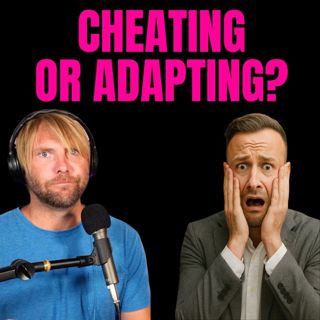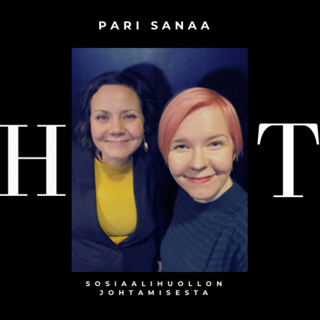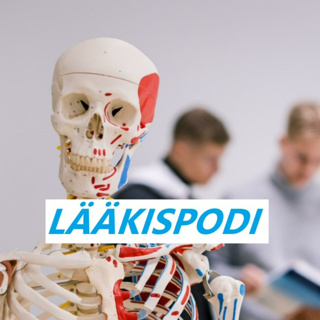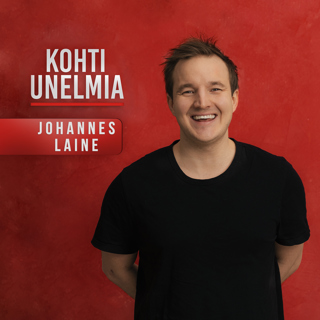
E29: From Wall Street Genius to Prisoner: The True Story of Bernie Madoff
Financial journalist Diana B. Henriques joins El Podcast to unravel the Bernie Madoff Ponzi scheme, discuss systemic regulatory failures, and explore her forthcoming book on FDR’s financial reforms.Guest Bio: Diana B. Henriques is a Pulitzer Prize-finalist and award-winning financial journalist known for her investigative reporting on white-collar crime, market regulation, and corporate fraud. She is the author of The Wizard of Lies: Bernie Madoff and the Death of Trust, adapted into an HBO film starring Robert De Niro and Michelle Pfeiffer, and her new book Taming the Street explores FDR’s fight to regulate American capitalism.Topics Discussed:The scale, secrecy, and timeline of Bernie Madoff’s Ponzi schemeRegulatory blind spots and the illusion of trust in financeDifferences between sociopathic behavior and criminal choicesThe criminal justice system’s treatment of white-collar crimeThe HBO film adaptation of The Wizard of LiesFTX, crypto regulation, and echoes of the unregulated 1920s marketHenriques’s new book on FDR and the origins of U.S. financial regulationTop 3 Quotes:“Madoff was more comfortable living with himself as a liar than living with himself as a failure.”“If it sounds too good to be true, you're dealing with an amateur. Bernie wasn't an amateur—he was a pro.”“Ponzi schemes aren’t over—one surfaces every five or six days.”📺Watch full podcast on YouTube➡️https://youtu.be/0ydT9s-s80I 🎙 The Pod is hosted by Jesse Wright💬 For guest suggestions, questions, or media inquiries, reach out at https://elpodcast.media/📬 Never miss an episode – subscribe and follow wherever you get your podcasts.⭐️ If you enjoyed this episode, please rate and review the show. It helps others find us. Thanks for listening!
28 Touko 20231h 15min

E28: Matt Stoller on the Rise of Corporate Feudalism in America
Matt Stoller, author of Goliath, joins the show to expose how monopoly power reshaped American democracy—and how we can fight back.Guest Bio: Matt Stoller is the Director of Research at the American Economic Liberties Project and author of Goliath: The 100-Year War Between Monopoly Power and Democracy. He previously served as a senior policy advisor in the U.S. House of Representatives, focusing on financial regulation, Dodd-Frank, and antitrust issues.Topics Covered:The rise and fall of anti-monopoly politics in AmericaWright Patman, the New Deal, and the Watergate Baby DemocratsThe 2008 financial crisis and bipartisan consolidation of powerThe role of think tanks, academia, and philanthropy in shaping discourseThe impact of AI, healthcare monopolies, and the loss of property rightsBig Tech, corporate power, and the modern culture warTop 3 Quotes:“If you want to know who controls discourse in D.C., it’s Google.”“People are afraid. And fear—not freedom—is what defines commerce in America right now.”“Politics should be about how we come together as a people who disagree—and still build a society.” 🎙 The Pod is hosted by Jesse Wright💬 For guest suggestions, questions, or media inquiries, reach out at https://elpodcast.media/📬 Never miss an episode – subscribe and follow wherever you get your podcasts.⭐️ If you enjoyed this episode, please rate and review the show. It helps others find us. Thanks for listening!
15 Touko 202347min

E27 Our Broken Medical System with Robert Yoho, MD (ret) || El Podcast
In this episode, we sat down with Robert Yoho MD (ret) a retired medical doctor turned whistleblower in the medical industry. He is the author of the book "Butchered By Healthcare" and "Hormone Secrets" We discussed what went wrong in our medical system, and much much more! Watch Full Episode on YouTube: https://youtu.be/evnLRYWcFkg🎙 The Pod is hosted by Jesse Wright 💬 For guest suggestions, questions, or media inquiries, reach out at https://elpodcast.media/ 📬 Never miss an episode – subscribe and follow wherever you get your podcasts. ⭐️ If you enjoyed this episode, please rate and review the show. It helps others find us. Thanks for listening!
3 Touko 20231h 23min

E26: The Energy Transition Scam? Dr. Lars Schernikau on the Unpopular Truth
German energy economist Dr. Lars Schernikau joins the podcast to explain why the global energy transition is economically unsustainable, environmentally misguided, and dangerously misunderstood.Guest bio: Dr. Lars Schernikau is a German energy economist, commodity trader, and co-author of The Unpopular Truth about Electricity and the Future of Energy. He has worked extensively in coal and energy markets, advised governments and corporations globally, and previously spent six years at the Boston Consulting Group.Topics discussed:The economic and environmental costs of the energy transitionWhy wind and solar are not scalable solutions for global energy needsGrid stability and the dangers of intermittent power sourcesThe role of fossil fuels, nuclear, and future energy systemsMisinformation, subsidies, and political incentives driving energy policyEnergy poverty, global development, and the human impact of rising energy costs3 best quotes:“The amount of money spent on the energy transition away from fossil fuels is probably the biggest endeavor that humanity has ever embarked on — and the biggest waste of money ever.”“If wind and solar were truly cheaper, they wouldn’t require trillions in subsidies or laws to force their installation.”“You don’t take money away from the problem. You invest in making it better, cleaner, and more efficient — especially when 80% of your existence depends on it.” 🎙 The Pod is hosted by Jesse Wright💬 For guest suggestions, questions, or media inquiries, reach out at https://elpodcast.media/📬 Never miss an episode – subscribe and follow wherever you get your podcasts.⭐️ If you enjoyed this episode, please rate and review the show. It helps others find us. Thanks for listening!
12 Huhti 20231h 2min

E25: Switzerland’s Version of the U.S. Constitution—But Smarter
Swiss political leader and asset manager Sasha Pictet joins the show to explain how Switzerland’s unique system of direct democracy works—and what the U.S. might learn from it.Guest Bio: Sasha Pictet is a Swiss national, asset manager, and co-founder of Leo Ventures and Salva, a company focused on regenerative tourism. He is a member of the Green Liberal Party of Switzerland and currently resides in the United States.Topics Discussed:Why Swiss women only gained full voting rights in 1991Switzerland’s adoption and evolution of a U.S.-inspired constitutionHow direct democracy works in Switzerland (referenda, constitutional changes, voting logistics)Political party structure in Switzerland and the role of the Green Liberal PartyPublic education, healthcare, and taxation in Switzerland vs. the U.S.The flaws in U.S. presidential and electoral systemsSocial cohesion, representation, and trust in government institutionsThe limits of inclusivity politics and DEIWhat Americans misunderstand about European "socialism"If Sasha could import one feature of Swiss governance into the U.S. Best Quotes:“Only the Swiss would vote against giving themselves more vacation.”“In Switzerland, if you want to change the constitution, you don’t amend it—you rewrite it.”“The damage one person can do is far greater than what seven people can.”“We don’t talk about race like Americans do. We talk about people—humans.”“You don’t change the rules for 99.99% of people to accommodate 0.01%.”“If you could fix one thing in the U.S., I’d start with the right to petition Congress directly.”📺Watch the full podcast on YouTube➡️https://youtu.be/5ozbBsZfhvc?si=NdeG-4H-XYaWqStQ 🎙 The Pod is hosted by Jesse Wright💬 For guest suggestions, questions, or media inquiries, reach out at https://elpodcast.media/📬 Never miss an episode – subscribe and follow wherever you get your podcasts.⭐️ If you enjoyed this episode, please rate and review the show. It helps others find us. Thanks for listening!
5 Huhti 202351min

E24: Quit His Job, Moved to Costa Rica & Built a Spanish School
Chris Reidy, founder of Tico Lingo in Costa Rica, shares how he built a Spanish immersion school from scratch and the transformative power of language learning through real-world practice.Guest Bio: Chris Reidy is the founder and program director of Tico Lingo, a Spanish immersion school based in Heredia, Costa Rica. Originally from Chicago, Chris moved to Costa Rica in 2015 and turned his own struggles with language learning into a thriving business that now serves students from around the world.Topics Discussed:How to reach Spanish fluency through immersionWhy U.S. schools fail at language educationStarting a business abroad as an AmericanLegal and tax challenges in Costa RicaWord-of-mouth and organic marketing strategiesCultural nuances of Costa Rican Spanish and hospitalityOvercoming betrayal and burnout as an entrepreneurThe role of homestays and real-life practice in language learningTop 3 Quotes:"Language is best learned with human connection—apps can’t replicate the spark you get from real conversation.""If you want to build something meaningful, be prepared to sleep on a yoga mat and eat rice and beans for months.""We don't do much marketing—we just exist, and people talk about us because the experience speaks for itself."📺Watch the full podcast on YouTube➡️https://youtu.be/Ax4co0z3A2k?si=f6kYkGL0B4BaIxnt 🎙 The Pod is hosted by Jesse Wright💬 For guest suggestions, questions, or media inquiries, reach out at https://elpodcast.media/📬 Never miss an episode – subscribe and follow wherever you get your podcasts.⭐️ If you enjoyed this episode, please rate and review the show. It helps others find us. Thanks for listening!
19 Maalis 20231h 16min

E23: The Truth About Howard Zinn: How Fake History Took Over American Classrooms
Dr. Mary Grabar joins the podcast to expose the lies and legacy of Howard Zinn, warning how his distorted version of U.S. history has fueled anti-American sentiment and ideological extremism in schools and culture.Guest Bio: Dr. Mary Grabar is a historian, author, and founder of the Dissident Prof Education Project, a nonprofit dedicated to resisting leftist indoctrination in education. She is currently a resident fellow at the Alexander Hamilton Institute and author of Debunking Howard Zinn and Debunking the 1619 Project.Topics Discussed:Howard Zinn’s ideological agenda and factual distortionsHow A People’s History of the United States misrepresents U.S. historyThe infiltration of Marxist ideology into American educationThe consequences of woke and activist teachingReclaiming accurate, balanced historical educationDr. Grabar’s personal journey and experiences exposing academic biasTop 3 Quotes:“Howard Zinn paints with a broad stroke — it’s a Manichaean history. There are good guys and bad guys, and nothing in between.”“The ideal of objectivity in history has been abandoned — Zinn said we must use history for social justice, no matter the truth.”“His book’s goal was to inspire anger strong enough to overthrow the American Republic. That was always the intent.”📺Watch the full episode on YouTube➡️https://youtu.be/GK74oWU5LDs?si=OP9aqNrUdqphbmVB 🎙 The Pod is hosted by Jesse Wright💬 For guest suggestions, questions, or media inquiries, reach out at https://elpodcast.media/📬 Never miss an episode – subscribe and follow wherever you get your podcasts.⭐️ If you enjoyed this episode, please rate and review the show. It helps others find us. Thanks for listening!
12 Maalis 202359min

E22: Why Overpopulation Is a Dangerous Myth – Dr. Marian Tupy Explains
Dr. Marian Tupy joins El Podcast to explain why population growth fuels innovation and prosperity—not doom—and how misguided green policies threaten global progress.Guest Bio: Dr. Marian L. Tupy is a senior fellow at the Cato Institute, editor of HumanProgress.org, and co-author of Superabundance: The Story of Population Growth, Innovation, and Human Flourishing on an Infinitely Bountiful Planet. Originally from communist Czechoslovakia, Tupy specializes in economic development, globalization, and the interplay of freedom and innovation.Topics Discussed:The false apocalyptic narrative of overpopulationThe religious nature of radical environmentalismWhy energy affordability is crucial to global prosperityThe psychological roots of pessimism and envyHow population decline and overregulation threaten innovationClassical liberalism vs. modern progressivismThe power of human creativity to solve global challengesTop 3 Quotes:“A baby is not just born with an empty stomach, but with a brain capable of improving the lives of others.”“The overreaction to a non-existent threat is less costly than underreacting to a real one—that’s why humans evolved to be pessimistic.”“Don’t compare yourself to people who are better off—compare yourself to your past self, or to those with less. That’s the path to gratitude.”📺Watch the full episode➡️https://youtu.be/6du7VqBrzdU?si=p7gndaVmPV2dQ2vY 🎙 The Pod is hosted by Jesse Wright💬 For guest suggestions, questions, or media inquiries, reach out at https://elpodcast.media/📬 Never miss an episode – subscribe and follow wherever you get your podcasts.⭐️ If you enjoyed this episode, please rate and review the show. It helps others find us. Thanks for listening!
5 Maalis 202352min






















